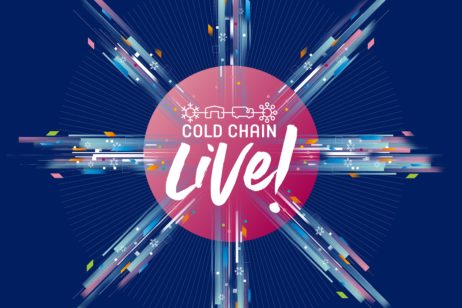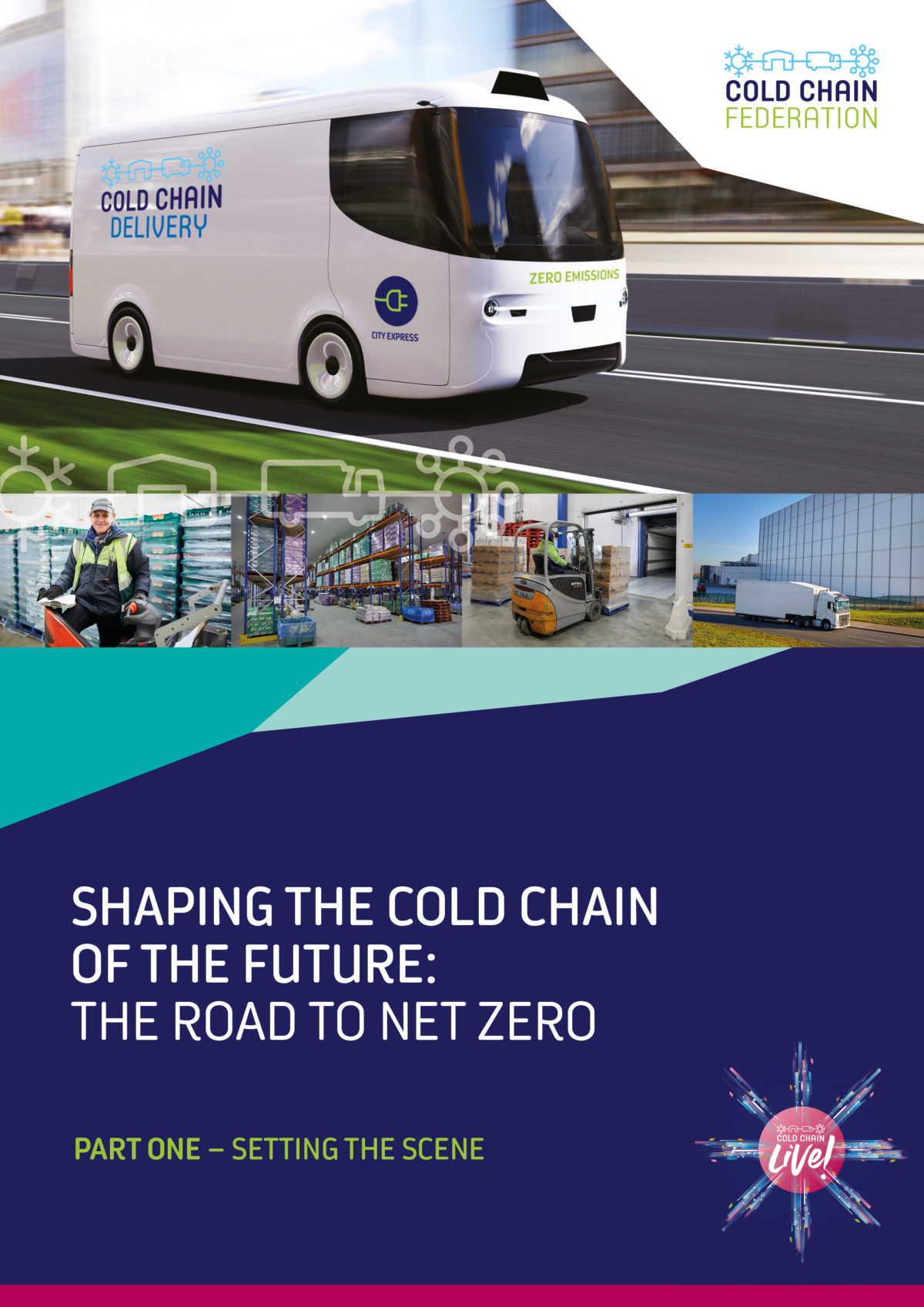
TOWARDS A NET ZERO COLD CHAIN
Welcome to the resources section for FUTURE OF TRANSPORT, the third week of 4 in the COLD CHAIN LIVE! TOWARDS A NET ZERO COLD CHAIN series.
Here you will find links to thought-leadership papers and other relevant information plus this week’s leader’s interview video and the recording of the live workshop.
INSIGHT
Here you will find links to papers from our speakers and other key reference sources containing useful information around this week’s theme.

Justin Laney, General Manager Fleet, John Lewis Partnership
Scope for optimism in times of change
John Lewis Partnership has made a big commitment for its fleet to become carbon neutral by 2030. Justin shares the challenges he faces to achieve this and why he is optimistic about the future.

Brian Robinson, Low Carbon Vehicle Partnership
The big picture of vehicle decarbonisation
As the UK government’s focus shifts from decarbonising cars to trucks, Brian discusses how the Avoid, Shift Improve framework can help operators in their decision-making.

Alan Hunt, Managing Director, UK and Ireland, Schmitz Cargobull
Only by embracing data will fleets get ahead of the curve
Data and telematics will drive the future of logistics. Trailers are no longer seen as just a simple box on wheels, but the data host providing valuable insight into vehicle performance as a whole.

Tom Southall, Policy Director, Cold Chain Federation
Decarbonising and reducing carbon emissions from temperature-controlled distribution
The key to a successful transition to low or zero emission refrigerated transport is an effective balance of regulation and incentives combined in a clear and dedicated road map for temperature-controlled transport.

Stephen Osman, Head Of Client Solutions EMEA, Procuro Euro Ltd
In his paper Stephen describes the power of digital technologies and the ways in which operators can harness this power in their businesses.

John Harkness, Marketing and Customer Services Manager, Smart Graphics
Sustainable choices for vehicle branding
Whilst the focus for operators is on vehicle efficiency and data, John reminds us that a sustainable choice for livery materials should not be ignored.
Further Reading
Decarbonising Transport: Setting the Scene (Department for Transport, 2020)
Decarbonising road freight (Centre for Sustainable Road Freight, 2019)
White Paper: Decarbonising the UK’s Long-Haul Road Freight at Minimum Economic Cost (Centre for Sustainable Road Freight, 2020)
http://www.csrf.ac.uk/2020/07/white-paper-long-haul-freight-electrification/
Sustainable Refrigerated Road Transport – Investigating the Scale of Carbon Emissions from Direct- Drive Last Mile Refrigerated Vehicles (LSBU: Judith Evans et al. 2019)
https://openresearch.lsbu.ac.uk/item/8674y
LEADER’S INTERVIEW

This week Shane talks to Paul Jackson, Managing Director, Chiltern Distribution. Paul is an experienced cold chain entrepreneur having built the Chiltern brand. A hands-on leader, he has built a well-respected international haulage business in the temperature controlled food and pharmaceutical industries. He has also played a key role in shaping the future direction of the Cold Chain Federation and will be talking to Shane about the future of cold chain transport.
WORKSHOP PRESENTATIONS
PRESENTERS’ SLIDES

SHAPING THE COLD CHAIN OF THE FUTURE: THE ROAD TO NET ZERO
PART ONE – SETTING THE SCENE
We are working to bring our industry together, to define what we mean by a net zero cold chain and to ask ourselves where the gaps are in our knowledge and where the potential is for collaboration. This paper starts the conversation and is the basis for engagement within and outside our industry.
Road to Net Zero Part 4 - Cold Store of 2050
The Cold Store of 2050 is our vision for how temperature-controlled warehouses could evolve to achieve a step change in energy efficiency whilst driving energy transformation in the UK as part of the transition towards a net zero economy by 2050. The report details the technologies which could become more widespread, the barriers to their adoption and how businesses, government and those responsible for the UK energy network will need to collaborate to ensure the opportunities and benefits detailed in this report are achieved.
SHAPING THE COLD CHAIN OF THE FUTURE: THE ROAD TO NET ZERO (PART THREE - THE JOURNEY TO EMISSION FREE TEMPERATURE-CONTROLLED REFRIGERATION ON ROAD VEHICLES)
The Journey Towards Emission Free Temperature-controlled Distribution on Road Vehicles is our vision for how transport refrigeration units (TRUs) can transition away from diesel, to emission free alternatives in line with the UK’s decarbonisation and air quality targets. It sets out our view on the technological outlook for TRUs, how operators and manufacturers will adapt to drive down emissions and finally the financial, infrastructural and regulatory support which will be required to enable us to meet our ambitious targets.
SHAPING THE COLD CHAIN OF THE FUTURE: THE ROAD TO NET ZERO (PART TWO - DEFINING A NET ZERO COLD CHAIN)
Although businesses operating the cold chain are committed to reducing their greenhouse gas (GHG) emissions and other pollutants in line with UK Government targets, we are not as yet in a position to estimate the extent to which we can reach net zero by 2050 and to set our own firm targets. The guide sets out why it is imperative to determine the carbon footprint of the cold chain, and also the Cold Chain Federation’s commitment to not only support members to assess their own emissions, but to also support recently announced academic studies to assess the total emissions from the UK cold chain.
SHAPING THE COLD CHAIN OF THE FUTURE: THE ROAD TO NET ZERO (PART ONE - SETTING THE SCENE)
This document is the basis for the Cold Chain Federation's engagement within and outside our industry; to define what we mean by a net zero cold chain and to ask ourselves where the gaps are in our knowledge and where the potential is for collaboration.
Headline Partners
Supported by

